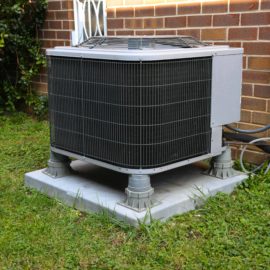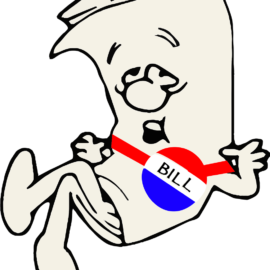
Save the planet but what about trade.
President Biden’s flagship climate policy is aimed at saving the planet. But it has caused a rift across the globe. The Inflation Reduction Act, passed last August and now being rolled out, is the biggest climate investment in U.S. history. It ought to have been welcomed by our allies in the West, who have for years pressed the United States to show greater leadership on this global issue. Instead, the legislation has led to international tensions and talk of trade war. Which is especially disappointing considering Biden had pledged to repair relationships with U.S. allies after the open feuding of the Trump era, which had left everyone (especially the United States) worse off. The problem? Like many of Biden’s other industrial policies, the Inflation Reduction Act has become a pack mule for all sorts of unrelated agenda items, including lots of beggar-thy-neighbor protectionism.
washingtonpost.com
EV tax credits is a good example.
Take, for example, the bill’s revamped electric vehicle tax credits. The bill includes layers of convoluted criteria that effectively direct more subsidy dollars to cars assembled in, and using parts sourced from, the United States. Some U.S. officials say these measures are designed to reduce our reliance on China for strategic critical minerals. That’s partly true. But the policyalso punishes non-Chinese producers, including EV makers in Germany, South Korea and Japan. You know, the countries we claim we’re trying to draw closer, so we can collectively counter China. Instead, we have alienated these friends. European and Asian media routinely mention the United States and China in the same breath, with both framed as selfish superpowers whose policies threaten to hollow out or “deindustrialize” other nations. Leaders of important U.S. allies are furious; French President Emmanuel Macron accused Biden’s marquee climate law of “fragmenting the West.”
Buy America is good except when it isn’t.
Depending on whom you ask in the Biden administration, the Inflation Reduction Act’s “Buy America” tilt is either a feature or a bug. Some officials suggest the law was designed to encourage manufacturers to relocate to the United States, independent of the cost to allied countries (or the efficiency of the climate program, for that matter). Other times, Biden himself has suggested the opposite. At a December appearance with Macron, a conciliatory Biden said his plan was “to continue to create manufacturing jobs in America, but not at the expense of Europe.” At the same event, Biden also described the measures sometimes viewed as costliest to Europe as mere “glitches.” He was referring to a provision that says some subsidies are available only when a certain percentage of battery “critical minerals” are sourced from countries with which the United States has a “free trade agreement” — a technical term that applies to only 20 countries, all listed on the U.S. Trade Representative’s website. Some of our most important allies (Britain, the European Union, Japan) are excluded because we do not have this kind of comprehensive trade deal with them. Improbably, Biden suggested this was all a misunderstanding — that the subsidies were supposed to apply to all “allies,” and that the bill’s authors “didn’t mean, literally, free trade agreement.” A Treasury white paper, and some other Cabinet member comments, also suggest that the administration might indeed soon decide to, ahem, creatively reinterpret what a “free trade agreement” means.
What about commercially leased.
Similarly, the administration has already stretched the definition of a “commercially-leased vehicle” in such a way asto allow more EVs to qualify for subsidies even though they don’t meet all the domestic content requirements, according to Peterson Institute for International Economics researcher Chad P. Bown. Such gimmicks might help smooth things over with some of our friends, for now (assuming the gimmicks survive any potential legal challenges). That could be helpful ahead of a high-stakes White House visit this week from European Commission President Ursula von der Leyen. If this particular EV conflict gets resolved, great. But other tensions over the structure of these subsidies remain. Global warming is an existential crisis, and we don’t have the luxury of loading up our climate policy with these protectionist distractions. “Buy America” provisions and potential trade wars ultimately raise the cost of producing these critical clean-energy technologies, and will slow their adoption. Perhaps we should be optimizing our climate measures to, you know, help the climate.
The problem with grand ideas and bills that have many fingers in them.



